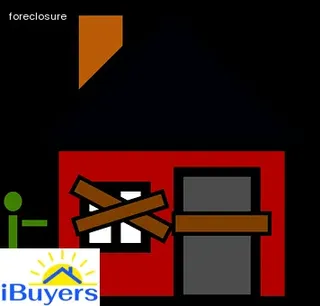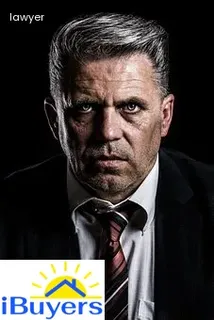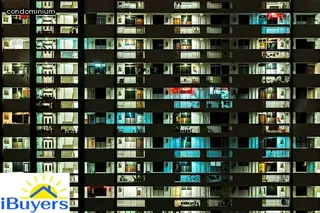In Pennsylvania, HOAs and COAs are common, as is the payment of assessments associated with them. Understanding how to navigate these assessments can be a challenge for anyone who owns property in the state.
It’s important to understand the legal regulations around unpaid assessments, as well as potential penalties and foreclosure options. Knowing who is responsible for maintaining the HOA or COA and what rights you have as a property owner can help you stay on top of your assessments and avoid any serious financial consequences.
Additionally, understanding the different types of assessments that may apply will allow you to more easily manage your payments and ensure that you are always up-to-date with the relevant dues. Being informed about all aspects of HOAs and COAs will help ensure that you remain compliant with all applicable rules and regulations in Pennsylvania.

Homeowner associations in Pennsylvania have the right to collect delinquent dues from homeowners who are not up to date on their payments. This is a legal obligation that must be fulfilled to maintain the HOA's financial health and ensure the upkeep of shared public spaces.
If a homeowner fails to pay their dues, the HOA can proceed with foreclosure proceedings, although this is usually a last resort. Penalties for unpaid dues include late fees and interest charges, which may be assessed at the HOA's discretion.
In some cases, homeowners may also be responsible for covering legal fees associated with any collection efforts taken by the association. Although collection of delinquent dues is within an HOA's right, they must abide by all state regulations regarding fair debt collection practices and provide adequate notice before initiating foreclosure proceedings.
When homeowners fail to pay their Homeowner's Association (HOA) or Condominium Owner's Association (COA) dues in Pennsylvania, their outstanding balance can be collected through a lien on the property. This is a legal claim made by the HOA or COA against the owner’s property, which allows them to collect the unpaid dues from any proceeds earned from a sale of the home.
The lien is filed with the county recorder and is recorded on public records, so it affects your credit score and ability to obtain mortgage financing. In some cases, mortgage lenders may require payment of all past due HOA/COA dues before they will provide you with a loan.
It’s important to understand that even if you are able to pay off other debts associated with delinquent HOA/COA dues, such as late fees and interest charges, these payments do not eliminate the lien on your property. Additionally, failure to pay HOA/COA dues can result in foreclosure proceedings initiated by your HOA/COA.
The penalties for not paying HOA/COA dues vary from state-to-state so it’s important to check local regulations for more details about how HOAs and COAs handle unpaid dues in Pennsylvania.

Navigating unpaid HOA or COA dues in Pennsylvania can be difficult, but there are strategies that homeowners can use to ensure they handle their dues responsibly and remain in compliance with regulations. One approach is to communicate regularly with the board of directors about any outstanding issues or payments due.
This allows for a clear line of communication between the parties involved and can help to resolve misunderstandings before they become too serious. Additionally, homeowners should take proactive steps to pay any late fees as soon as possible, as these can quickly add up and lead to more expensive penalties down the line.
It may also be a good idea to look into special payment plans that offer flexibility while still allowing individuals to keep up with their dues. Lastly, it is important for homeowners to stay informed on their local regulations and know when foreclosure proceedings may start if payments are not made in a timely manner.
Homeowners Associations (HOAs) in Pennsylvania play an important role in ensuring the overall quality and value of properties within a given neighborhood. HOAs use unpaid dues to cover costs associated with maintaining common areas, such as playgrounds, parks, or swimming pools.
Additionally, HOAs also help protect homeowners from potential problems that could arise from neighboring properties by establishing rules and regulations for each homeowner to follow. These rules can include guidelines on exterior paint colors, landscaping restrictions, noise control regulations and more.
Having these standards set in place means that all the homes in the community are kept up to the same standard which helps keep property values consistent while maintaining order and protecting everyone’s rights. Furthermore, unpaid HOA dues can lead to costly penalties including foreclosure proceedings so it is important for homeowners in Pennsylvania to understand their obligations under the law and how they can avoid any legal repercussions with respect to their unpaid dues.

Homeowners associations (HOAs) are a popular form of housing governance in Pennsylvania, and involvement with one can have both positive and negative implications for residents. On the plus side, an HOA can provide a sense of community and safety by regulating landscaping, noise levels, and other aspects of residential life.
HOAs also often offer amenities like pools and playgrounds to their members. However, failure to pay HOA dues can result in foreclosure or other collection penalties.
It’s important for homeowners to understand the rules and regulations of their HOA prior to signing on—for example, some HOAs may not be allowed to foreclose on delinquent accounts in certain counties due to local ordinances. Additionally, HOAs may be limited in terms of enforcement power; they cannot force non-members to comply with their rules without taking legal action.
Therefore, it is important for prospective homebuyers to do their research before joining an HOA in order to make sure that they understand all of the potential risks as well as rewards associated with membership.
When it comes to homeowners associations (HOAs) and condominium owners associations (COAs), delinquent dues can have a significant impact on your credit score. Unpaid dues can quickly result in an HOA or COA lien being placed on your property, which will be reported to the three major credit bureaus: Experian, TransUnion, and Equifax.
This can cause your credit score to plummet, making it difficult to purchase a home or vehicle and even get approved for a loan. To avoid this outcome, it is important to stay current with all HOA or COA payments so that you do not experience any negative repercussions on your credit score.
Additionally, if you are unable to pay the dues due to financial hardship, reach out immediately to the association so that they can work with you on a payment plan or other arrangements. Ignoring the issue is not recommended as it could potentially lead to foreclosure proceedings against you and further damage your credit score.
It is also important to review state regulations regarding unpaid HOA or COA dues as these vary from state-to-state. For example, in Pennsylvania there are specific foreclosure procedures that HOAs and COAs must follow in order for their lien rights to be enforced properly.
Understanding these regulations will help keep you informed of your rights and help ensure that you are taking all necessary steps towards avoiding a lien being placed on your property due to unpaid dues.

Unpaid Homeowners Association (HOA) or Community Owners Association (COA) dues in Pennsylvania can have serious consequences, including foreclosure. The Pennsylvania Condominium Act has explicit rules and regulations regarding unpaid dues and penalties for late payments.
For example, a homeowner who doesn't pay their HOA or COA fees is subject to a 10% penalty for any amount that exceeds $50. Furthermore, if the homeowner does not pay off the balance within 30 days of receiving notice of the lien, their property may be foreclosed upon.
Before this happens, though, homeowners will receive additional notices warning them of an impending foreclosure. Property owners should take note that they are still responsible for paying off these dues while their home is in foreclosure; failure to do so could mean more penalties or even additional legal action.
Even if a property owner successfully defends against foreclosure due to unpaid HOA or COA dues in Pennsylvania, they are still responsible for paying off the outstanding balance plus any applicable interest and penalties. It's important to understand all of these regulations before entering into a contract with a HOA or COA so that you can understand what your obligations and rights are if you ever find yourself unable to make payments on time.
When it comes to unpaid HOA dues in Pennsylvania, the process of foreclosure can be complex. HOAs and COAs have the legal authority to foreclose on a property when homeowners have failed to pay their fees.
The foreclosure process typically begins with the homeowner receiving a notice of default stating that they are currently behind in their dues payments. This document also provides information regarding how long they have to pay the overdue amount before foreclosure proceedings begin.
If payment is not made, a lien will be placed on the property and a lawsuit will be filed in court asking for permission to foreclose on the home. Once granted, a sheriff’s sale will take place and if no one bids or buys the property at this time, it then goes into possession of the HOA or COA who may lease it out or sell it at a later date.
During this time, penalties such as late fees, interest charges, attorney's fees and other costs may accumulate, so it's important for homeowners to stay up-to-date on their dues payments in order to avoid any further financial burden. It is also important for homeowners to familiarize themselves with relevant state laws regarding HOA and COA foreclosures so they are aware of their rights during this process.

When facing an HOA or COA foreclosure, pre-foreclosure negotiation is possible in Pennsylvania. Knowing the regulations and consequences of unpaid HOA dues is essential for property owners to prepare for any potential negotiations.
Foreclosure of unpaid HOA dues can be a stressful and intimidating experience, but understanding the rules in place can help inform decisions regarding a repayment plan or other financial arrangement. Homeowners should be aware of their rights when it comes to foreclosure proceedings, as state laws have been enacted to protect them from excessive fines and penalties.
Depending on the specific situation, homeowners may be able to negotiate with HOAs or COAs to avoid foreclosure if they are able to pay back missed payments within a certain period of time. Additionally, it’s important for homeowners to understand that sometimes an agreement between parties cannot be reached, which may result in foreclosure proceedings becoming unavoidable despite sincere efforts at negotiation.
It’s also important to note that foreclosures for nonpayment occur after several warnings and notices have been sent by HOAs or COAs.
When homeowners in Pennsylvania fail to pay their Homeowners Association (HOA) dues, serious consequences can occur. Homeowners who don't pay their HOA fees are subject to foreclosure, fines and penalties.
Foreclosure is a legal action that allows the HOA to take possession of the home if they are not paid. The homeowner will also be responsible for all costs associated with foreclosure, such as attorney's fees and other expenses.
Fines and penalties may also be imposed on the homeowner if they do not pay their dues on time. The amount of these fines and penalties vary by county and municipality, so it is important for homeowners to check with their local government before deciding not to pay HOA fees.
Additionally, there are certain regulations that must be followed when dealing with unpaid HOA dues in Pennsylvania. These include providing proper notice to the homeowner regarding any delinquency and giving them an opportunity to dispute or appeal the charges before taking legal action.
Homeowners should familiarize themselves with these regulations in order to avoid further complications or penalties when dealing with unpaid HOA fees in Pennsylvania.

There are several ways to get rid of an HOA in Pennsylvania. The first option is to pay off all unpaid HOA dues before the expiration date.
This will prevent foreclosure and avoid any penalties or fines. Additionally, it's important to understand the regulations set forth by the state of Pennsylvania regarding unpaid HOA dues, and how they might affect your ability to get rid of your association.
If a homeowner fails to pay their dues on time, they may be subject to late fees, interest charges, and even foreclosure. However, if a homeowner does not have the funds to pay their debt in full, there are other options available including negotiating with the HOA for a payment plan or loan modification.
Finally, homeowners who are unable to come to an agreement with their association may consider filing for bankruptcy as a last resort. Ultimately, it is important for homeowners in Pennsylvania to understand their rights and responsibilities when it comes to getting rid of an HOA in order to avoid unnecessary financial hardship.
In Pennsylvania, Homeowner's Associations (HOAs) are governed by the laws of the Commonwealth. The Pennsylvania Unfair Trade Practices and Consumer Protection Law (UTPCPL) is the primary law that outlines how HOAs operate and regulate their residents in terms of unpaid dues.
In addition, the state Real Estate Code also provides guidance on HOA regulations and foreclosure procedures when it comes to unpaid dues. Furthermore, municipalities may have the authority to enforce local ordinances that relate to HOAs and unpaid dues.
Lastly, many HOAs in Pennsylvania are overseen by a board of directors who can establish rules and regulations within their jurisdiction.
Yes, Pennsylvania does have homeowners associations (HOA). Homeowners associations are organizations of property owners in a particular area or community that are responsible for enforcing HOA rules and regulations.
Unpaid HOA dues can result in serious consequences for homeowners in the form of fines and even foreclosure proceedings. In order to avoid penalties and foreclosures, it is important to understand the regulations surrounding unpaid HOA dues in Pennsylvania.
Pennsylvania’s laws regarding HOAs vary from municipality to municipality, so it is important to be aware of the specific laws that apply where you live. Generally speaking, HOAs may assess late fees on overdue payments, place liens on properties with delinquent accounts, and charge interest on unpaid balances.
In more serious cases, HOAs may take legal action against homeowners who fail to pay their dues or fail to comply with other regulations set by the association; this could include foreclosure proceedings. It is important for homeowners in Pennsylvania to stay up-to-date on their HOA dues payments and make sure they understand their rights and responsibilities as members of an HOA.
In Illinois, the homeowner is ultimately responsible for HOA dues even after foreclosure. The mortgage lender is no longer liable once the title of the home has been transferred to its new owner.
When a foreclosure takes place, it is important to understand that any unpaid HOA dues are transferred from the previous homeowners to the new owners. This means that if there are any outstanding dues when the home is foreclosed on, those fees will then become the responsibility of whoever purchases it.
In addition, penalties may also apply for late or unpaid fees. It is always recommended that potential buyers thoroughly research all applicable regulations and fees before purchasing a property with an HOA in order to ensure they can meet the requirements and avoid any financial repercussions.